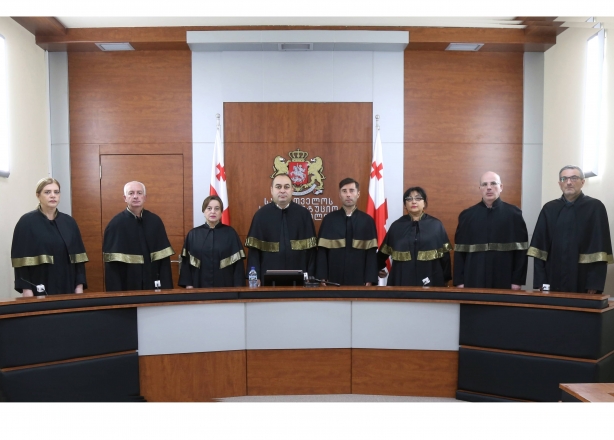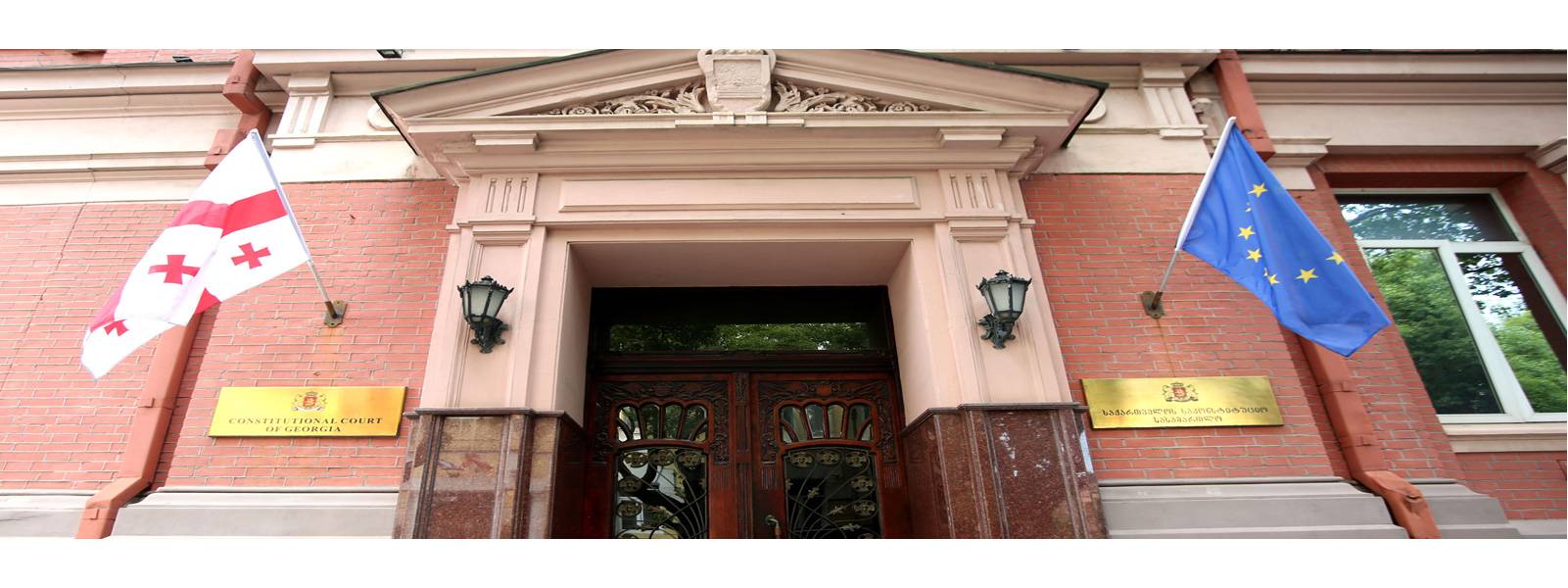News
The Constitutional Court of Georgia does not uphold the unconstitutionality of the provisions challenged under Constitutional Submission №1715
On October 17, 2025, the Plenum of the Constitutional Court of Georgia did not uphold the unconstitutionality of certain provisions of the Organic Law of Georgia’s “Local Self-Government Code” that were disputed with Constitutional Submission №1715
Disputed norms hold that the termination of the Deputy Mayor's powers is a matter to be decided by the Mayor of the municipality within the scope of expediency. According to the reasoning of the author of the submission, the question of whether the position of Deputy Mayor possesses purely political characteristics should be determined by examining the functions they perform. At the municipal level, the Deputy Mayor performs, inter alia, functions of a quasi-professional character that require appropriate competence and a stable working environment. Based on this, the author of the constitutional submission argued that early dismissal from the position of Deputy Mayor - contrary to the regulation established by the contested provisions - requires relevant grounds and proper justification.
The Constitutional Court of Georgia initially clarified that, within the meaning of Article 25 of the Constitution of Georgia, the position of Deputy Mayor constitutes a public office and, accordingly, is subject to the guarantees enshrined in the same Article of the Constitution, which are aimed at ensuring the unhindered exercise of public service. In this regard, the Constitutional Court assessed, on the one hand, the purpose of safeguarding the position of Deputy Mayor of a municipality and the scope of constitutional guarantees offered to it; and on the other hand, examined the official status of the Deputy Mayor, the procedure for appointment to the position, and the functions assigned to it.
Based on the analysis of the Deputy Mayor’s powers, the Constitutional Court established that the position significantly differs from that of a person engaged in professional, purely labor-based relations. From a functional perspective, the Deputy Mayor is a member and assistant of the Mayor’s political team. Moreover, the activities undertaken by the Deputy Mayor are entirely dependent on the actions and political agenda planned and determined by the Mayor, who is the principal figure directing the municipality's development policy. Accordingly, the Constitutional Court clarified that the primary obligation of the Deputy Mayor is to support the Mayor's work. In addition, in the context of protecting individual labor rights, the Constitutional Court noted that a person appointed to the position of Deputy Mayor by the municipality is, from the outset, aware of the nature of the position and the scope of the guarantees associated with it. Among other things, it is evident to such a person that occupying this position is not tied to meeting objective and foreseeable criteria or to a competitive selection process
The Constitutional Court of Georgia also arguedthat the effective functioning of the executive body of local self-government is fully ensured through cooperation, personal trust, and coordination between the Mayor and Deputy Mayors. Based on this, the Court concluded that associating the tenure of Deputy Mayor with the Mayor’s assessment of expediency is reasonably justified. Consequently, the Constitutional Court of Georgia held that, within the existing legislative framework, disputed norms do not contradict the requirements of the second sentence of the first paragraph of Article 25 of the Constitution of Georgia.
The subject of dispute: The constitutionality of the words “… and removes from office …” in subparagraph “a.c” of paragraph 1 of Article 54, the words “… and removes from office …” in paragraph 1 of Article 57, and paragraph 2 of Article 59 of the Organic Law of Georgia “Local Self-Government Code”, in relation to the second sentence of the first paragraph of Article 25 of the Constitution of Georgia.


